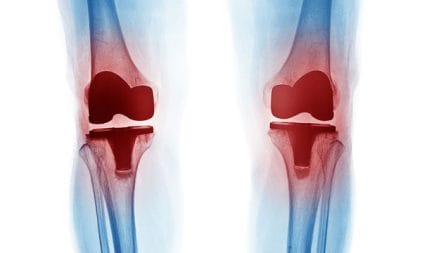Joint Replacement

Joint replacement is an increasingly common operation. Most frequently knees and hips are replaced, but shoulders, finger joints and ankles may also be replaced.
Sources of the problem
Arthritis and injuries to joints can wear away the smooth cartilage that allows painfree movement. Replacing one or both parts of a joint can restore movement and reduce pain. However, all joint replacements retain your own ligaments and muscles which often require exercise or other treatment to recover after replacement surgery.
What to expect
Exercises often begin while still in hospital, and you may have a routine to follow at home. At our clinic you can get advice on how to change these exercises as you progress, or to target specific movement problems. Often help is required with correct walking pattern, perhaps with crutches or sticks, and regaining good posture is also important. In knee replacements, controlling swelling and regaining movement and strength are vital for success. Even if you are doing well it is good to get advice and encouragement in your exercise regime. Adding variety can make progress quicker and keep up your enthusiasm.
Prevention/Pre-op treatment
Maybe you are waiting for a replacement or have been told your joints require treatment in a few years time. Don’t wait for the operation date! Exercising and using your limbs now can make post-op recovery quicker and less painful, and knowing what to expect after surgery is very reassuring. We can provide treatment and advice before surgery to help you prepare and maintain strength and function.

 Nearly two thirds of the population of the UK have experienced back pain which affects their ability to carry out daily tasks such as lifting or bending. 2.5 million people suffer back pain every day of the week. More working days are lost in this country through back pain than for any other reason.
Nearly two thirds of the population of the UK have experienced back pain which affects their ability to carry out daily tasks such as lifting or bending. 2.5 million people suffer back pain every day of the week. More working days are lost in this country through back pain than for any other reason.